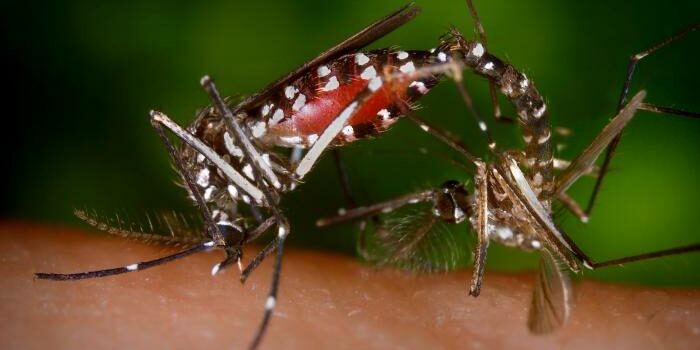
What is Dengue?
Dengue viruses are spread through the bite of an infected mosquito from the Aedes species (Ae. aegypti or Ae. albopictus). Although symptoms can be mild, severe dengue can be life-threatening within a few hours. Dengue is caused by one of four related viruses (known as dengue virus 1, 2, 3, and 4). It is possible to be infected more than once, with a different dengue virus each time. Those infected more than once are more likely to develop severe dengue. About half of the world’s population lives in areas with a risk of dengue, and the disease is often a leading cause of death in these parts of the world.
Burden
Dengue is common in Puerto Rico, the US Virgin Islands, and American Samoa. There have been dengue outbreaks in the Americas, Africa, the Middle East, Asia, the Pacific Islands, and in US states where the type of mosquitoes that spread dengue are common.
- Up to 400 million people are infected with dengue worldwide each year
- About 1 in 4 people infected with dengue will get sick
- About 1 in 20 people who get sick with dengue will develop severe dengue
- About 40,000 people die from dengue worldwide each year
Symptoms
Symptoms can be mild or severe. Mild dengue symptoms can last 2-7 days. Most people will recover from mild dengue within about a week. The most common symptom is fever with any of the following:
- Nausea, vomiting
- Rash
- Aches and pains (headache, pain behind the eyes, or bone, joint, or muscle pain)
It’s important to watch for warning signs of severe dengue, which usually begin within 24-48 hours after the fever has gone away.
People at higher risk for severe dengue include:
- Anyone who has had dengue in the past
- Infants and pregnant women
Warning signs of severe dengue include:
- Belly pain, tenderness
- Vomiting (3 or more times in 24 hours)
- Bleeding from the nose or gums
- Vomiting blood, or blood in the stool
- Feeling tired, restless, or irritable
If you have any warning signs of severe dengue, see a healthcare professional immediately. Severe dengue is a medical emergency.
Prevention
Dengue can be prevented by avoiding mosquito bites:
- Use insect repellent
- Wear long-sleeved shirts and long pants
- Treat boots, pants, socks, and tents with permethrin
- Use screens on windows and doors
- Sleep under a mosquito bed net when outside or in a room that does not have screens
A dengue vaccine is approved in the US for children age 6–16 years who have previously had laboratory-confirmed dengue virus infection and who live in areas where dengue is endemic (occurs often or continuously). The vaccine is not approved for use in US travelers who are visiting but not living in an area where dengue is common. These areas typically include:
- Puerto Rico
- US Virgin Islands
- American Samoa
Treatment
There is no specific drug to treat dengue. Treatment for mild dengue focuses on relieving symptoms:
- Rest
- Take acetaminophen (also known as paracetamol outside the US)
- Do not take aspirin or ibuprofen
- Drink plenty of water or drinks with electrolytes
Severe dengue is a medical emergency and requires immediate medical care at a clinic or hospital.
If you think you have dengue, talk to a healthcare professional and let them know about recent travel.
Updated March 2023
Source: Centers for Disease Control and Prevention
Related Resources

Updates from June 2024 Advisory Committee on Immunization Practices (ACIP) Meeting
In this recorded webinar, speakers discuss updates from the June 2024 Advisory Committee on Immunization Practices (ACIP) meeting, focused on US vaccination recommendations for children, adolescents, and adults …
Related Posts

ID News Round-Up
Advances in infectious disease prevention and treatment have made headlines on COVID-19, flu, HPV, RSV, and more
